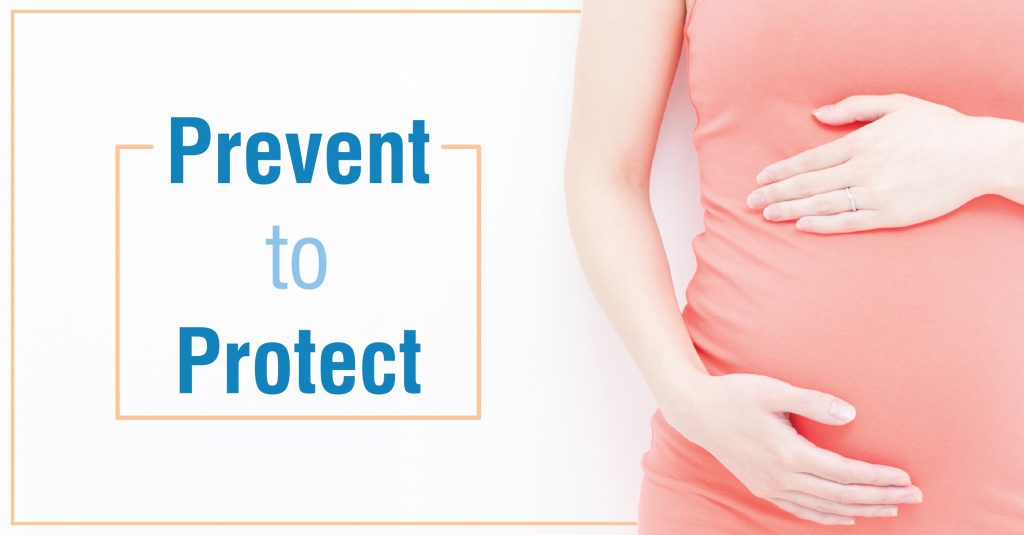
Infections during pregnancy can be harmful to both you and your baby. Timely preventive measures help improve chances of having a healthy baby.
Here are a few things you can do to prevent certain infections:
-
Maintain good hygiene –
Wash your hands thoroughly and regularly to protect yourself and your baby. Regularly washing your hands, especially before and after any activity, is one of the best ways to eliminate germs, avoid getting sick and prevent infections. In case soap or running water is not available, use an alcohol-based hand gel.
-
Avoid unpasteurized (raw) milk and products made from it –
Avoid consuming soft cheeses unless they have labels that say they are pasteurized. Unpasteurized products contain harmful bacteria that can cause infections during pregnancy. Make sure you read the food labels before you buy any product.
-
Talk to your obstetrician about vaccinations –
A few vaccinations are recommended before, during your pregnancy, or right after childbirth. Having the right vaccinations at the right time can help you to stay healthy and keep your baby away from infections.
-
Make sure the meat is well-cooked –
Cook meat well before consuming because undercooked meat might contain harmful bacteria. While you cook meat, make sure the juices should run clear and it is cooked well from inside. Keep in mind that poorly cooked and processed meat may contain harmful bacteria, which may cause infections during pregnancy.
-
Avoid sources of infections –
Although it’s a normal warning, you should stay away from people who have contagious diseases such as chicken pox or rubella. This is very important if you didn’t have it before or did not get vaccinated before pregnancy.
-
Get tested for sexually transmitted diseases (STDs) –
Protect yourself by getting tested for sexually transmitted diseases (STDs) such as HIV, hepatitis B and syphilis. Some people, who have HIV, hepatitis B or, an STD infection, do not feel sick. Knowing if you have one of these diseases is important so that you can take preventative measures. Consult your obstetrician to know how you can reduce the chance of your baby getting infected.
-
Stay away from wild or pet rodents and their droppings –
Get pest control done in and around your house to get rid of pests. If you have a pet rodent, such as a hamster or guinea pig, ask someone else to take care of it until your baby arrives. Some rodents might carry harmful viruses.
-
Be careful with insects –
It’s important to stay away from mosquitoes and invest in repellents and mosquito nets. Avoid travelling in areas where infections such as Zika may cause a threat to you and your baby. If you live near a field, make sure to protect yourself against ticks. When mosquitoes and ticks are active, wear long-sleeved shirts and long pants.
-
Delegate risky tasks –
If you have a cat, do not touch or clean dirty cat litter. If there is no one to help you, wear gloves while cleaning your cat’s litter and wash your hands properly. Dirty cat litter might contain harmful parasites that may cause infections during pregnancy.
-
Be cautious in public places –
If you’re going to be outdoors, avoid sitting directly on the ground. Always carry a clean blanket or a towel to sit on. There are many different factors that can be harmful like pigeon waste to dirty items in the street. You should even try to avoid public toilets, and if you must use one, try to avoid touching the toilet seat.
These steps can help you to prevent infections that could harm you and your developing baby. If you feel you might have an infection or think you are at risk, consult your obstetrician immediately. You’re responsible for your life and that of your baby’s, so it is very important for you both to stay healthy. Talk to your obstetrician and learn more about preventing infections during pregnancy.
“Pregnancy is going to alter your thinking forever; it’s going to make you realize how fragile and important life is and why it must be protected at all cost”
-Anonymous
